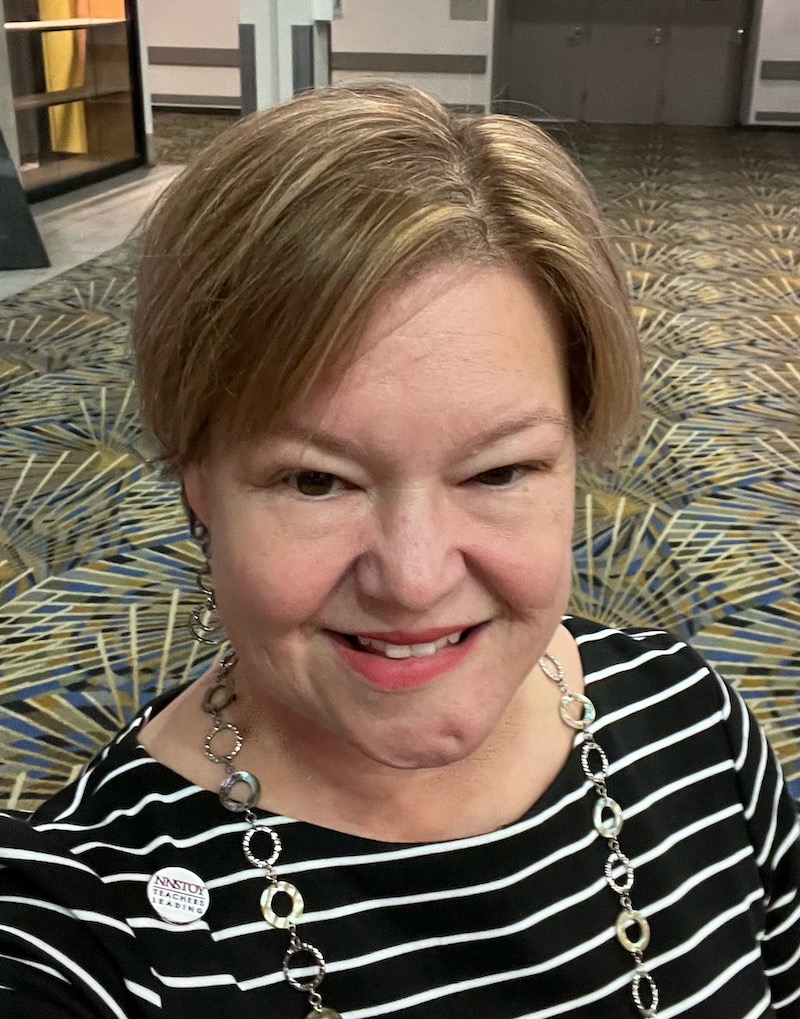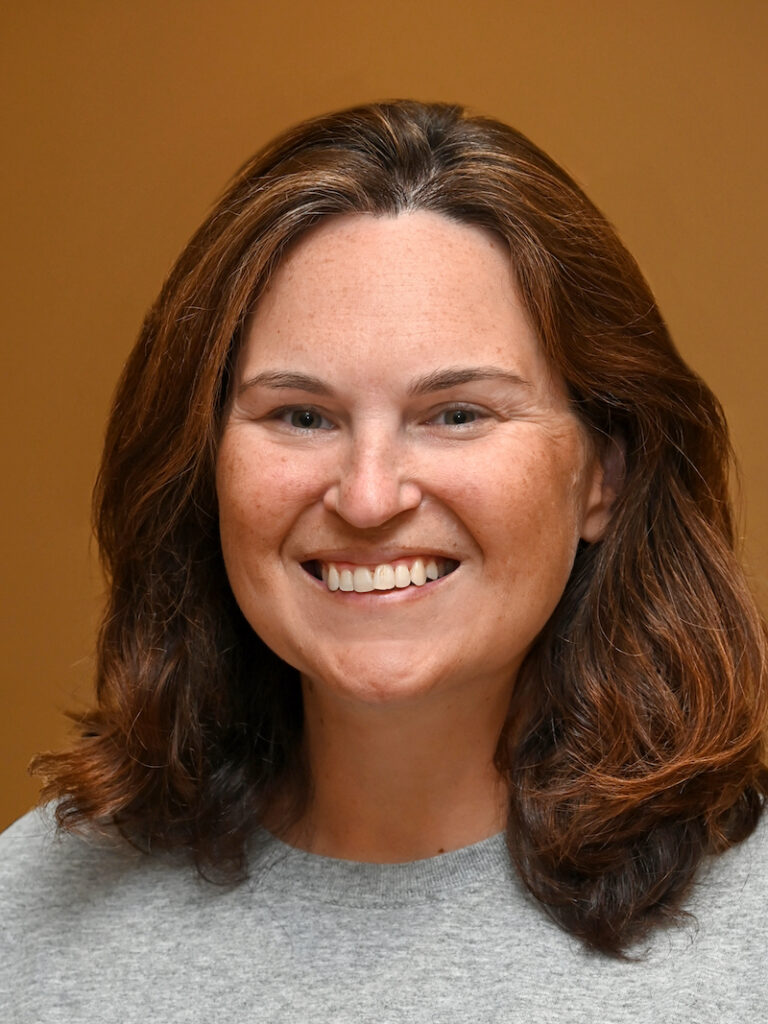
Young citizens need civics education to understand their constitutionally guaranteed rights. The best civics teachers also help students learn the skills they need to protect their rights. Two graduates of the Master of Arts in American History and Government (MAHG) program submitted essays on how they teach these skills to the Bill of Rights Institute’s 2023 National Civics Teacher of the Year Award, placing among the top ten finalists. Both Kymberli Wregglesworth of Onaway, Michigan and Amanda Peters of Frisco, Texas urge students to stay wary of encroachments on their personal rights. Yet both go further. They teach self-government as a cooperative activity. They encourage students to listen to other citizens’ perspectives. Pushing students to learn about local government, they teach habits of civil conversation about issues close to home.

Our Apprenticeship in Liberty Begins at the Local Level
“Civics class should give students an apprenticeship in liberty,” Wregglesworth argued. “It should give them not only an understanding of our founding, our Constitutional system, and the practical process of lawmaking. It should point them to windows of access to involvement in government, even before they are voters.” She spoke of local government processes—schoolboard, city, and county government meetings—that her own students observe and report on. These give students a sense of how self-government works, and may even give students opportunities to participate by commenting at such meetings.

Peters agreed. “Civic engagement involves more than just showing up to vote. Even before they are eligible to vote, students become civically engaged as they practice the skills of good citizens.” Students do not need to be of voting age to “block walk” for local government candidates. They do not even need to be naturalized citizens to write letters to the lawmakers who represent the districts they live in. In the rapidly growing northern suburb of Dallas where Peters teaches, many students are immigrants from Southeast Asia, and Peters encourages them to learn about the American constitutional system by following politics at the state and local level. “Laws made at the local level affect students every day, often even more than laws made at the national level.”
But the apprenticeship in liberty young citizens need should occur primarily in civics class itself, both Peters and Wregglesworth said. One of the most important skills students need to master, both said, is the art of productive dialogue with fellow community members.
The Small Republic of the Civics Classroom
Peters’ and Wreggleworth’s experience in the MAHG program convinced them that carefully facilitated seminar discussions give students practice in such dialogue. As the “Statement of Principles” given to teachers who participate in Teaching American History programs explains, teachers gather in these seminars to discuss primary documents of American history, aware of the central importance to Americans of:
equality and freedom, which we understand to be not only fundamental political principles but fundamental educational principles. We engage with our students as equals with us in devotion to the truth and to understanding the documents we study as their authors understood them. We talk with students, rather than at them, because that is how free and equal individuals converse with one another. Our manner implies, in brief, that our classrooms are small republics.
“The small republic” of the civics classroom can have a powerful effect on civic life in America as a whole, Wregglesworth believes. “The civics classroom is perhaps the one place in America today where citizens of all groups and backgrounds come together,” she said. “You have students from a variety of racial, ethnic, and religious backgrounds. You have students from economically advantaged and disadvantaged families. It’s a microcosm of the larger society. If we can help students function together as a deliberative body as they discuss the issues we face in government, perhaps they’ll learn skills they’ll carry into their lives as adults. Perhaps they’ll learn to build consensus, or at least to compromise with those who disagree with them.”
Americans Need More Practice in Civil Conversation
Watching current American political discussion devolve into arguments over contending claims of rights, Wregglesworth notes that Americans simply need more practice in friendly political dialogue. “We were told, ‘You shouldn’t talk about politics.’ But we absolutely should talk about it! If we don’t talk about it on a low stakes level, around the dinner table or with colleagues and friends, we aren’t going to be able to talk about it at a high stakes level when it really matters.”
Peters noted that the increasing media emphasis on national rather than local and state government has inhibited productive dialogue. “Local TV stations lack the time, money and talent to adequately cover local news. People aren’t sufficiently aware of the issues facing local government,” so they don’t know how to discuss them. While citizens are often afraid of voicing opinions that might offend their neighbors, “they don’t worry about offending people who live a thousand miles away, with whom their only interaction is on social media,” Peters says. No wonder political discussions become contentious.
How to Teach Civil Conversation
Productive discussion of history and government does not occur automatically. Social studies teachers must lay the groundwork by earning students’ trust. Both Wregglesworth and Peters feel fortunate to teach both freshmen and upper classmen. “When I get students for civics, I’ve already had them for world history in 10th grade,” Wregglesworth says. “They know I won’t let them be bullied by other students for having the outlier opinion. Through trial and error, they learn how to question their peers’ ideas without attacking their peers. I tell them, we’re going to debate issues and opinions. We’re not going to debate people. In this classroom, we are all equal to one another.”

She does advise students that their opinions will carry greater weight if they are backed by research. “The person whose opinion is based on one YouTube video cannot be as persuasive as the person who has looked at a range of alternatives and can say, ‘Here’s why I disagree with this option and support this alternative.’”
Primary documents offer starting points for civil conversation. “I often find myself implementing in my own classroom the same type of discussions we had in MAHG,” Peters said. “Like the MAHG faculty, I tell students, ‘These are our focus questions for the document we’re discussing today.’” Then she encourages students to engage in what she calls the “Harkness” discussion method. “It’s based on a practice developed at Philips Exeter Academy, yet it’s very like the discussion method used in MAHG seminars. I throw out a question to begin the discussion, then the students take the lead. A student responds to my question, then calls on another student to comment further. “Each student who comments must respond to what another student has just said, rather than making a point about an idea discussed earlier. They must keep current with where the discussion has gone.” Through this process, students practice careful listening and respectful response. Developing “a kind of camaraderie,” they commit to the rules they have established.
Primary Documents Focus Discussion and Teach Compromise
Since beginning her MAHG studies, Peters has brought into civics class many more historical documents than she previously used. “Now, when I teach the Constitutional Convention, I conclude by asking students to read the speech Benjamin Franklin wrote to be read to delegates on the last day of their work (September 17, 1787).” Franklin, alluding to the fact that none of the delegates emerged from the negotiations having secured every constitutional feature they had hoped for, describes his own feelings:
I confess that there are several parts of this Constitution which I do not at present approve, but I am not sure I shall never approve them. For having lived long, I have experienced many instances of being obliged by better information, or fuller consideration, to change opinions even on important subjects, which I once thought right, but found to be otherwise. It is therefore that, the older I grow, the more apt I am to doubt my own judgment, and to pay more respect to the judgment of others.
“Debates in the Federal Convention of 1787, by James Madison, a Member.” Record for Monday, September 17. Edited by Gordon Lloyd. Ashbrook Publishing, 2014.
“Everyone knows Franklin is a smart guy,” Peters says. “Yet he is telling the other delegates, ‘I know that I don’t know everything. So, despite my reservations, I support what we’ve done here. And I hope all of you will leave this place and sell the heck out this Constitution during the ratification process.’”
Wregglesworth teaches habits of civil conversation when students raise questions about certain constitutional features. For example, many students find it hard to understand the Electoral College, especially when a candidate who wins the popular vote tally loses the election. Wregglesworth directs them to online articles recommending reforms to the presidential electoral system. “Pick one proposal and explain to the class why it is better than the current system,” she says. “If you research the options, and you feel that no one proposal really fixes the problem, make a Frankenstein out of elements of two proposals. Then explain that one to us.”
Students bring such reform ideas to the class as a whole, who critique each idea together, working toward a consensus about the best plan. “If I can get them to cooperate and come up with novel ideas to make the country better, maybe at least a few of them will carry a willingness to work with other citizens into their adult lives,” Wregglesworth said.
“Democracy is always hard,” Wregglesworth said. “The founders knew it was hard. Still, they trusted themselves, and they trusted posterity, to make democracy work. And for the most part, democracy is still working.”






